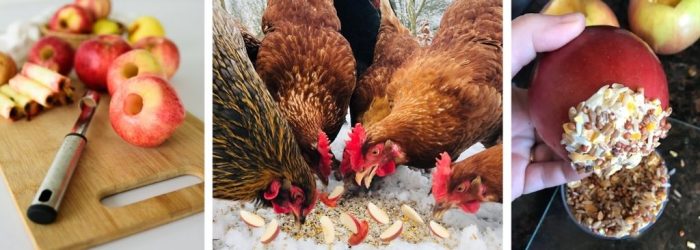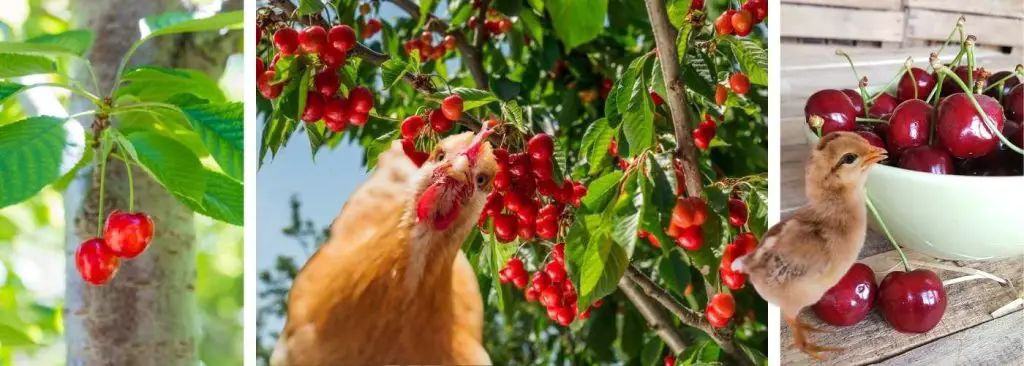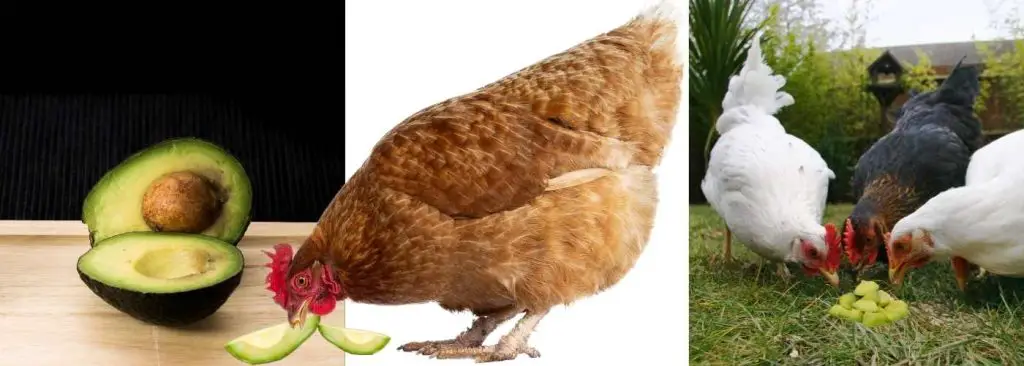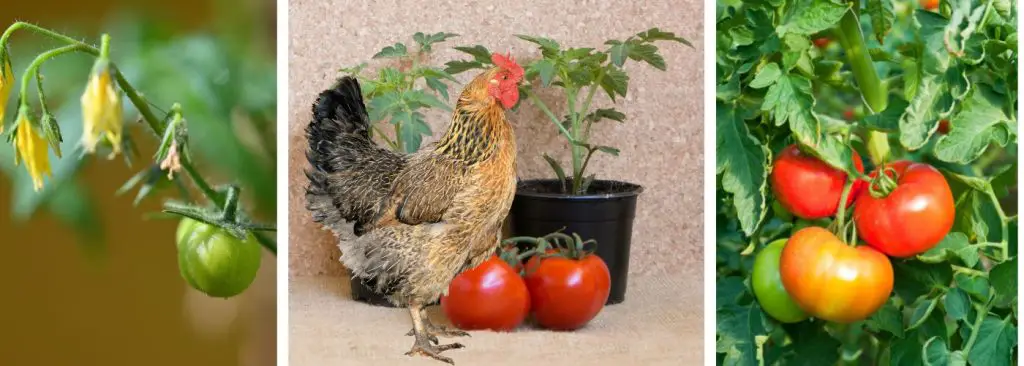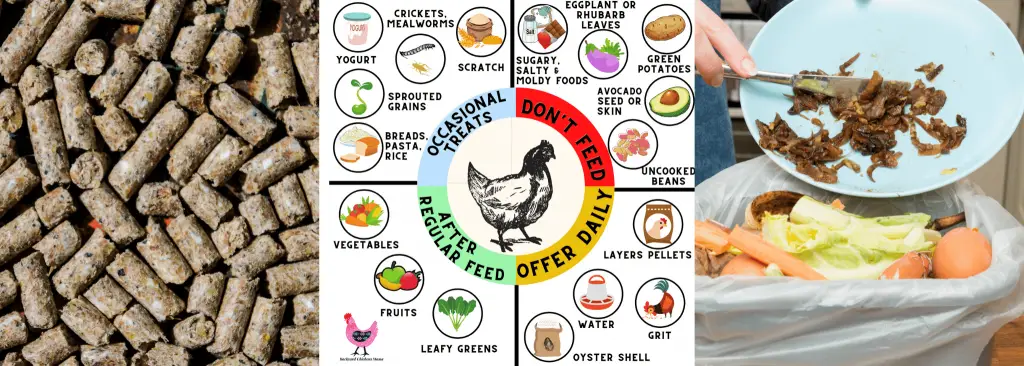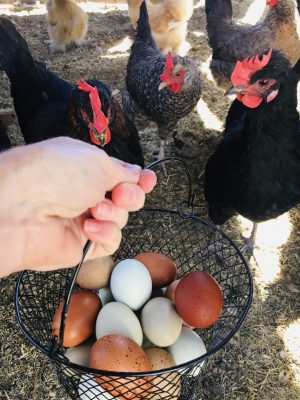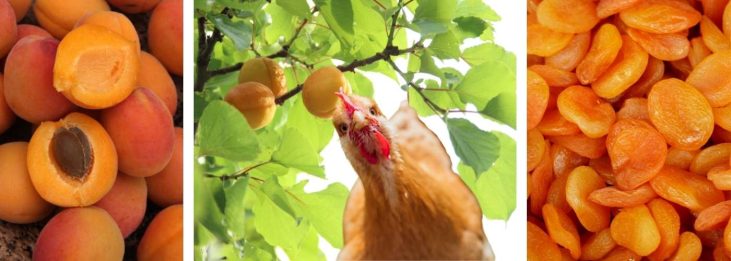
Can chickens eat apricots? Yes, apricots are very healthy for chickens, in moderation. These fruits are packed full of nutrients that will benefit a chickens health, immune system and even their well-being. It is safe for chickens to eat the flesh part of the apricot, but it is important to know that parts of the tree and fruit can be toxic to them.
- 7 Things You Need to Know- Can Chickens Eat Tomatoes?
- 10 Things You Need to Know- Can Chickens Eat Watermelon?
- 7 Things You Need to Know- Can Chickens Eat Avocado?
- 5 Things You Need to Know: Can Chickens Eat Apples?
- 7 Things You Need to Know- Can Chickens Eat Cherries?
1. Are Apricots Healthy for Chickens to Eat?
| NUTRIENT | NUTRITIONAL CONTENT IN 1 TBS APRICOT | HOW CHICKENS BENEFIT FROM IT |
|---|---|---|
| VITAMIN E | 0.09 mg | NERVE, MUSCLE, CIRCULATORY HEALTH, IMMUNE RESPONSE, FERTILITY, EGG PRODUCTION |
| VITAMIN C | 0.97 mg | DECREASES SIDE EFFECTS OF STRESS |
| VITAMIN A | 9.3 mcg | SUPPORTS IMMUNITY, VISION, SKIN |
| VITAMIN K | 0.32 mcg | BONE HEALTH |
| CHOLINE | 0.27 mg | LIVER AND NERVOUS SYSTEM HEALTH |
| BETA-CAROTENE | 105.98 mcg | ENDOCRINE SYSTEM HEALTH, IMMUNITY, PIGMENTATION OF SKIN AND EGG YOLKS OF HENS |
| LUTEIN + ZEAXANTHIN | 8.62 mcg | EYE HEALTH, YELLOW COLOR OF SKIN AND EGG YOLK |
| FOLATE | 0.87 mcg | PRODUCTION OF DNA AND RNA |
| PANTOTHENIC ACID (B5) | 0.023 mg | AIDS IN ENERGY UTILIZATION, IMPROVES GROWTH RATE |
| CARBOHYDRATES | 1.08 g | ENERGY |
| SUGARS | 0.90 g | ENERGY |
| FIBER | 0.19 g | DIGESTIVE HEALTH, DEVELOPMENT OF ORGANS |
| POTASSIUM | 25.06 mg | HEART FUNCTION, MUSCLE CONTRACTION |
2. Can Chickens Eat Apricots: Leaves, Stems or Seeds?
Apricot stems, leaves and the seeds all contain a naturally occurring compound called amygdalin. When it is crushed or chewed, it is released and the body converts it into cyanide.
Studies have shown that apricots from the Rosaceae species contained from 0.1-17.5 mg/g of amygdalin! This compound turns into cyanide when it is crushed or chewed.
Apricot Leaves: Chickens should not be fed apricot leaves because they contain amygdalin which when ingested will convert into cyanide.
Apricot Stems: Remove the apricot stems before serving them to your chickens. Most chickens tend to avoid the stems of the apricot, but if you can it is best to just remove them.
Apricot Seeds or Pits: Apricot pits and seeds contain amygdalin. Most apricot pits are too large for a chicken to eat and chickens do not have teeth, so they cannot crush these hard stones.
A chickens digestive system will not break down the pit. Instead, it will pass through its digestive system until it is pooped out.
3. Can Chickens Eat Unripe Apricots?
Unripe apricots are more bitter, but perfectly fine for your chickens to eat. Its nutritional content is pretty much the same, minus the naturally occurring sugars in a ripe one.
An unripe apricot has a lower level of the toxic compound amygdalin in the pit. The level increases as it ripens.
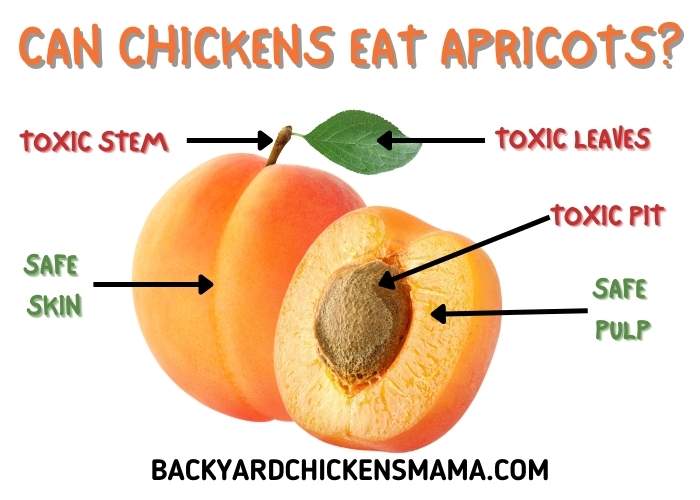
4. What Happens if My Chicken Eats Apricot Leaves, Stems, Pits?
Depending upon the size and age of your chicken and how much it consumed will determine how harmful it will be to them. Both very young and old chickens may suffer more if they eat apricot leaves, stems or pits. It can range from a mild stomach upset, diarrhea to shock and in severe cases death.
| WHAT HAPPENS IF MY CHICKEN EATS APRICOT LEAVES, STEMS OR PITS(SEEDS) |
|---|
| MILD STOMACH UPSET |
| DIARRHEA |
| VOMITTING |
| RESPIRATORY PROBLEMS |
| PANTING |
| HEADACHE |
| MUSCLE PAIN |
| JOINT PAIN |
| SEIZURES |
| SHOCK |
| LOW BLOOD PRESSURE |
| TIREDNESS |
| NERVOUSNESS |
| INABILITY TO SLEEP |
| RED MUCOUS MEMBRANES |
| DEATH |
5. Can Chickens Eat Dried Apricots?
Chickens can eat dried apricots as long as there isn’t any added sugars to them. Dried apricots already have a naturally higher sugar content so any more sugar isn’t healthy for your chickens.
Sugar has no health benefits for your chickens and too much of it can cause obesity, high blood pressure, difficulty with egg laying and many other negative health problems.
Heavy chickens also have difficulties cooling off during extreme heat and are more likely to suffer from heat exhaustion.
6. When Can I Feed My Chickens Apricots?
Young chicks can eat the apricot pulp as early as its second week of life. It is important to let newly hatched chicks get used to their regular feed before introducing treats.
For all ages of chickens, first give them its regular chick crumbles or layers pellets during the day. Later in the afternoon is a great time to check on your chickens and give them a little apricot treat.
Make sure that you remove any leaves and stems that may be attached. Even a small amount of apricot leaf can cause a bad stomach upset with a young chick.
7. Tips on Feeding Chickens Apricots
The serving size of treats for an adult chicken is about 1 TBS per day. Treats shouldn’t be more than 10% of a chickens daily diet. This is for a “healthy” chicken. Any more than this and it can lead to obesity and other health issues.
If you purchased your apricots from the grocery store and they are not organic, there may be some pesticides or herbicides on the fruit. Because this can be toxic to chickens, it is important to wash the fruit before serving it to your chickens.
Most chickens disregard the pits and eat the flesh surrounding it. The first time you feed them to your flock, monitor them to make sure they don’t try to eat the small pits. Mine just disregard them and I pick the pits up when they are finished.
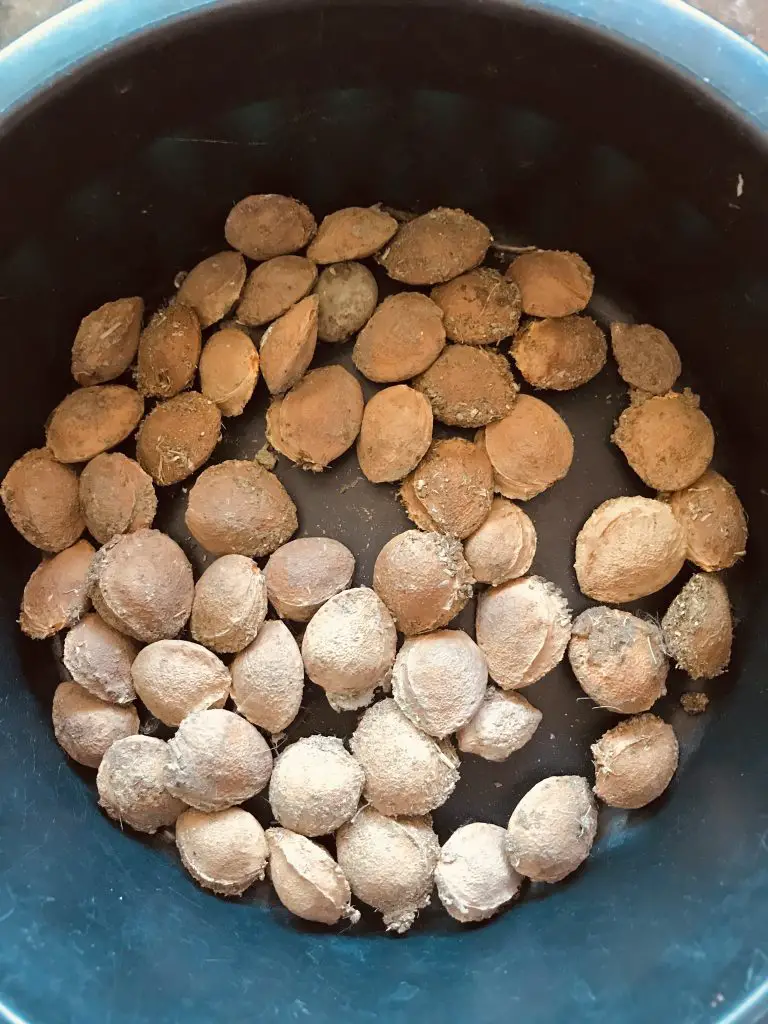
The first time you feed your chickens apricots, monitor their poop. If you notice any of your flock has diarrhea, remove any remaining apricots. Next time you serve apricots, cut back on how many you serve to them.
CONCLUSION: Can Chickens Eat Apricots? 7 Things You Need to Know
Apricots are healthy for chickens to eat in moderation. They are filled with nutrients that will help to boost their immune system, well-being and health.
Apricot tree leaves, stems and the pit (seed) can be toxic to chickens. The pit is like a hard stone. Most chickens avoid this part of the fruit all together.
The toxic substance amygdalin, is inside of the pit and can only become toxic to a chicken if it is crushed or chewed. Chickens do not have teeth and cannot crush open this stone. Its digestive system will eventually just pass the stone when it poops.

